All summer long we’ve enjoyed pack-filled adventures. We did some vacationing in Vegas, Disneyland, and Hawaii, but mostly, we took advantage of the renowned San Diego weather! We love spending our time outdoors in the summer, and among all the dirt, scrapes, boo-boos and bug bites, looking back, the one thing we didn’t have to worry much about was getting sick.
Now that school’s back in (and all four are in school!), it’s time for our annual back-to-school chat about self-care and staying healthy. We all know that children are better listeners (and doers) when they feel empowered to create positive change on their own. So, keeping their ever-independent spirits in mind, I position our little discussion as our “back-to-school health huddle.”
More than 10,000 children younger than 18 end up in emergency rooms every year for self-administering and overdosing on OTC medicines.
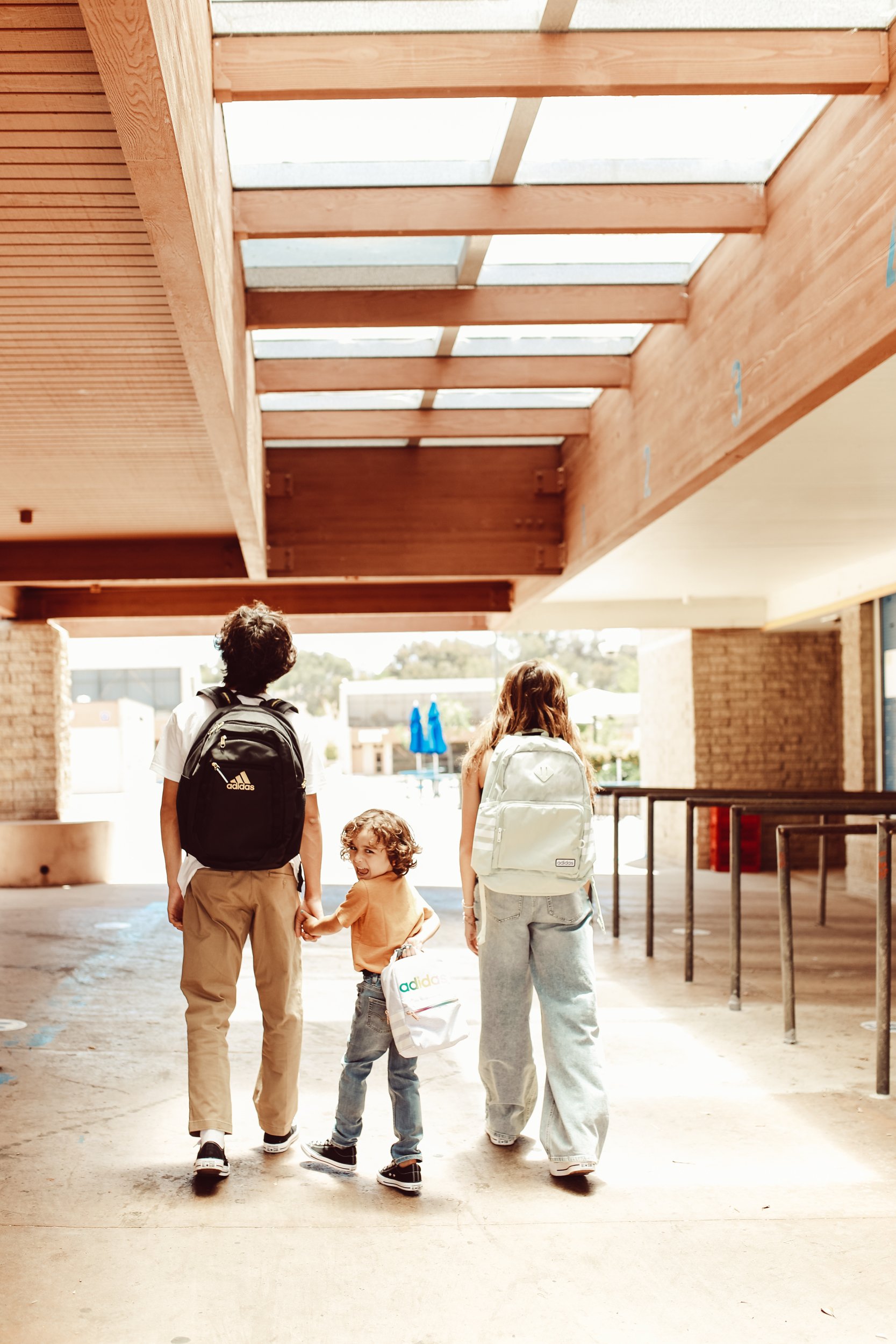

School Is Where We Go to Grow
Every school year is a chance for my kids to learn new skills, make new friends and exercise their brains. They grow smarter, taller and stronger as the year goes by. And as long as they’re healthy, there’s no stopping them!
So it’s important for me to teach them the best way to keep themselves healthy, clean, and germ-free, especially in this post-COVID climate. In a perfect world, their eyes light up, and they’re all ears, right? Right. It may go in one ear and out the other, but if we don’t educate our kids on best practices to beat airborne germs, the chances our homes will become hotbeds for illness this season may double. I don’t know about you, but I’m not taking that chance!
Below, I’ve listed some tips from my brand partner KnowYourOTCs.org to help empower your kids to be as aware—and prepared—for a new school season and new germs. Scroll down to the age group most relevant to you and your kids.
The average American child has six to 10 colds a year. Children’s colds cause more doctor visits and missed school days than any other illness.
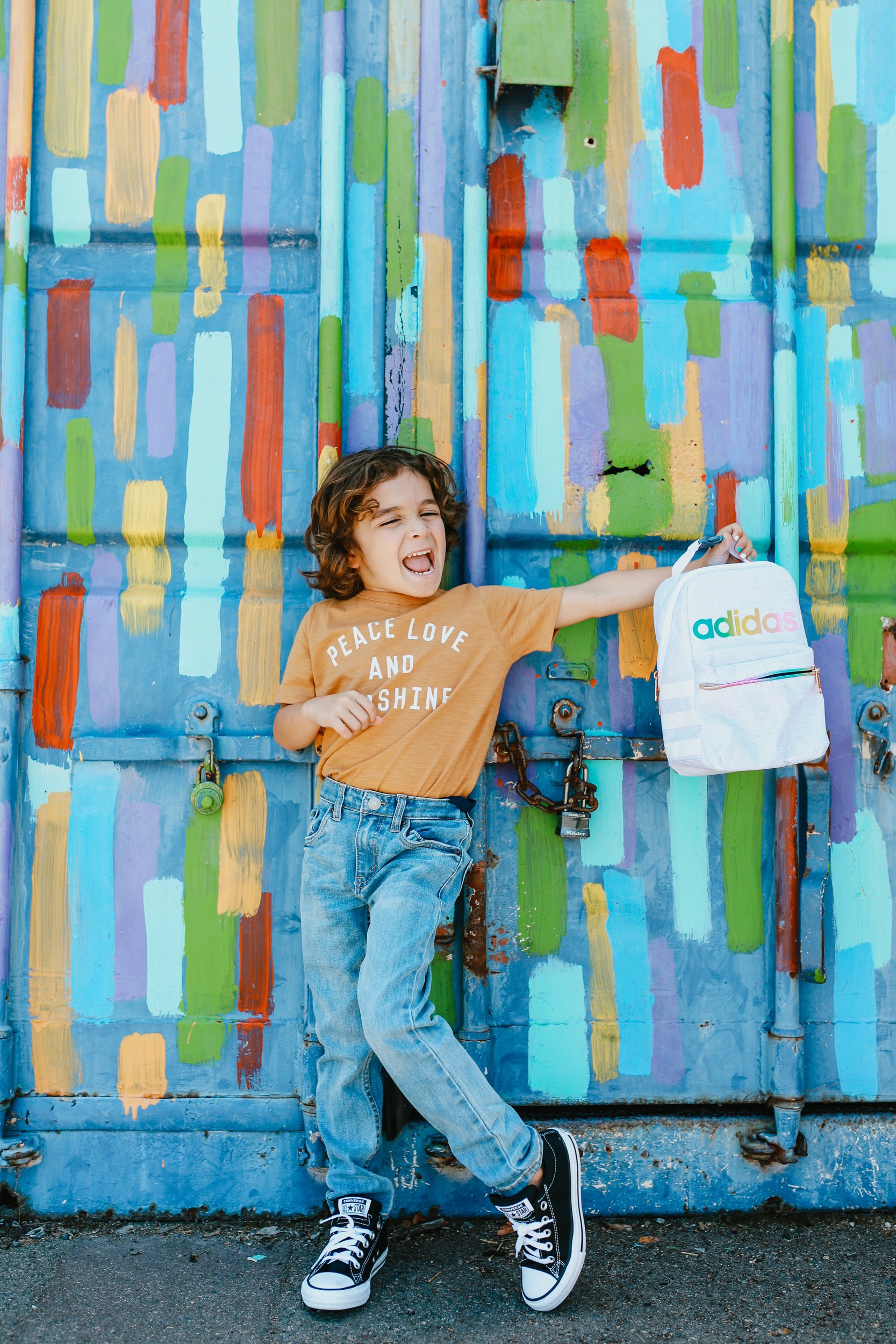
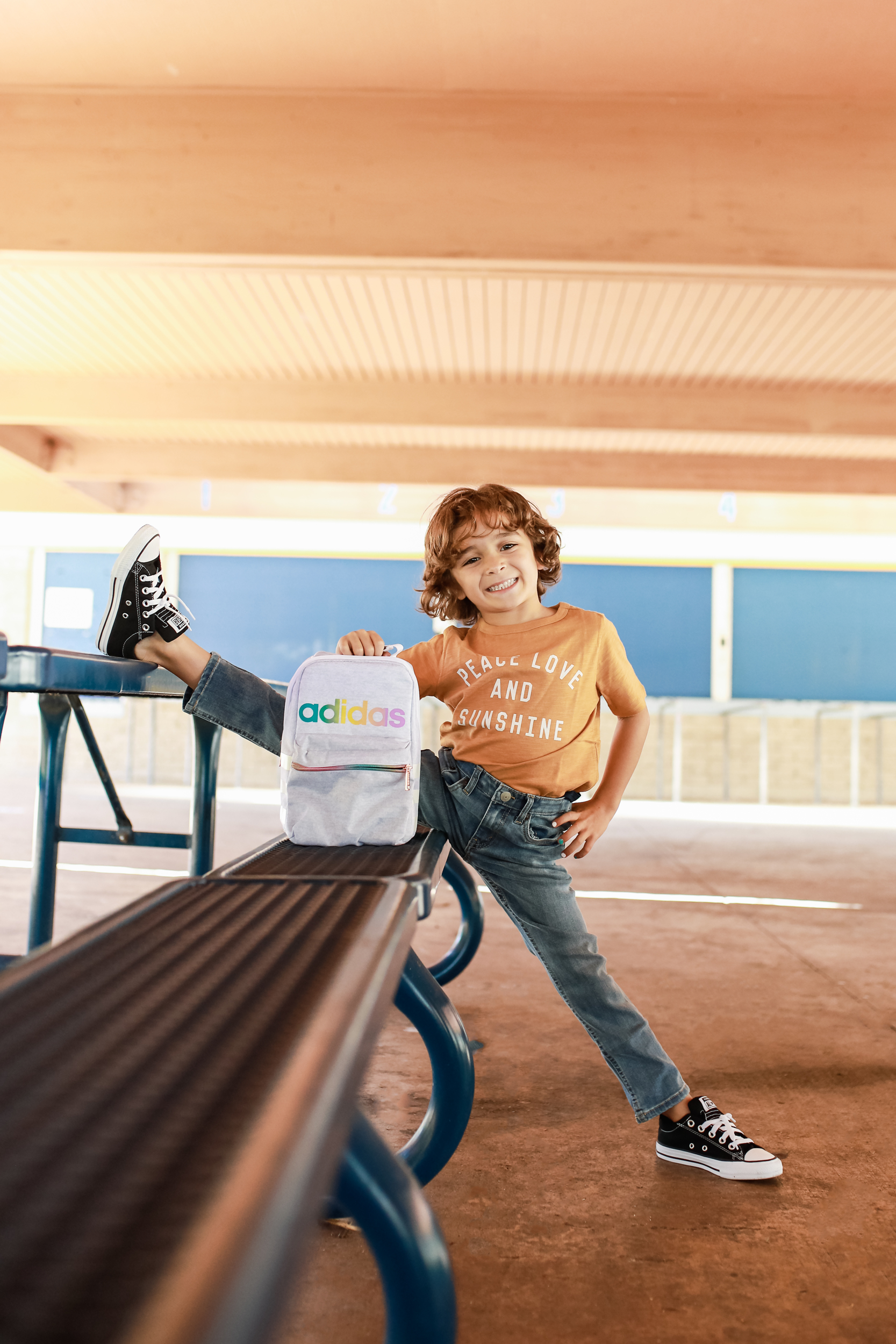
4 Tips for Parents of Preschool-Elementary-Aged Kids
With my youngest now joining his siblings in school, I’m all over it when it comes to this topic. In fact, nowadays he wants to wash his hands all the time, so I know it’s working! When it comes to this age group, prevention is key. And teaching them to be a part of that process from a young age is important.
Teach Them About the Importance of Handwashing
For kids, regularly washing their hands can be a fun and entertaining activity—and it provides a chance for them to take an active role in their own self-care. Children should wash their hands for 20 seconds, or about how long it takes to sing the happy birthday song.
Teach Them to Cough Into Their Elbow
According to Dr. Wendy Sue Swanson of Seattle Mama Doc, germs are most commonly spread by the respiratory droplets emitted from sneezing and coughing. They’re transmitted to things like door knobs, remotes, kitchen counters, and other surfaces. It is age-appropriate to explain this to your kids and teach them that coughing into their elbow can help germs from spreading to others. Remember that masks are still a great option!
Use the Proper Word for Vitamins
In fact, Dr. Swanson admittedly recalls referring to liquid medicines as “yum-yums” when her boys were young in an effort to get them to take acetaminophen or other medicine easily. She has since called this a “totally novice move as a mom and pediatrician.” Never tell kids medicines (including vitamins) are candy, even if they don’t like to take it.
Only Take Medicine From a Parent or Trusted Caregiver
And make sure all your medicines are stored safely up and away and out of sight! Find more information about the safe storage of medicines here.
Check out all my parenting tips on the City Girl Gone Mom Pinterest board!
Children’s immune systems are less developed than those of adults, so they’re more susceptible to germs.
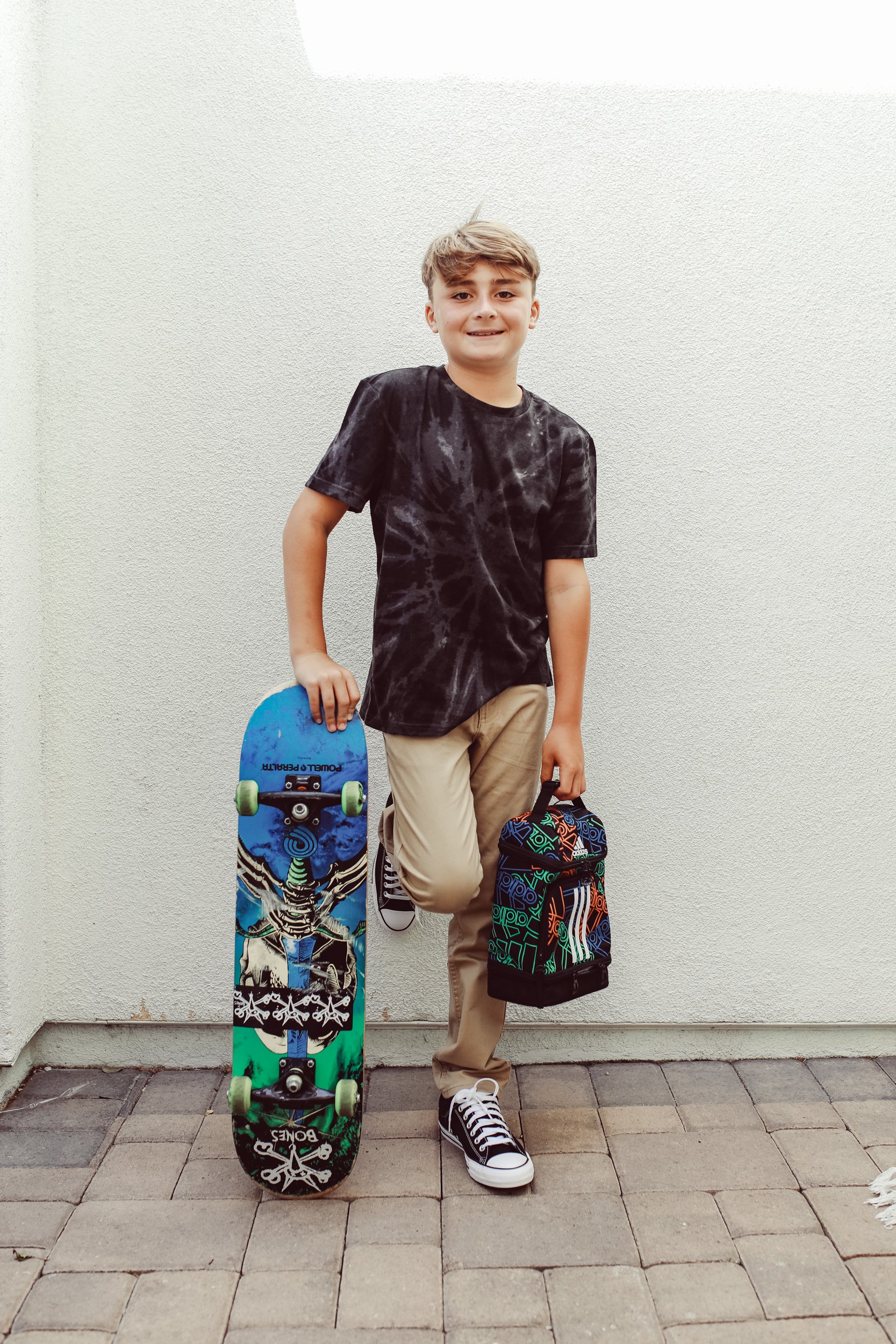

3 Tips for Parents of Middle School-Aged Kids:
Roman is notorious for leaving a trail behind, whether it’s candy wrappers or Kleenex, so when it comes to germs in the house, he’s a likely culprit. But he’s also very responsive when we empower him with tasks that make him feel as independent as his older siblings. So with this age group, building upon a foundation of prevention and creating good habits through clear communication is key.
Have Them Join You When Reading the Drug Facts Label of Medicines
When you reach for an OTC medicine to help treat their symptoms, involve them in the process of reading the Drug Facts label before administering the medicine. In this process, they will learn about safe dosing and using the proper dosing device, along with creating a good habit of reading the label first.
Involve Them in How to Safely Dispose of OTC Medicines
Pre-teen kids like to be involved—show them that OTCs have an expiration date on the label, tell them that once a medicine reaches its expiration date, it can become less effective and whenever you schedule your annual cleaning out of your medicine cabinet, involve them in how to safely dispose of OTCs.
Continue the Self-Care Conversation
Obviously, the importance of hand-washing doesn’t stop after pre-school—almost every kid still needs gentle reminders. Additionally, early elementary is about the age when kids take the lead in brushing their own teeth but older kids might still need reminders to brush twice a day. Find more tips on good oral care habits here.
According to Scholastic, only 54 percent of younger teens know OTC medicine can be dangerous. They mistakenly think OTC drugs are safer because you don’t need a doctor’s prescription to get them.


3 Tips for Parents of High School-Aged Kids:
Ahh…the teen years. Jackson and Dylan are at the age when self-care is important to them. This is the perfect time to help encourage them to take the lead in their own self-care while gently reminding them of a few things.
Teach Them How to Swallow Pills
Kids age out of pediatric medicines by middle school. Pediatrics cites research demonstrating that learning how to swallow a pill may be easier for younger children to master before they’re facing the anxiety that can come from having to swallow something whole.
Prepare Them for Self-Care During Puberty
From late elementary school through high school—the conversation about personal hygiene and self-care is never a one-and-done. As kids enter puberty (roughly between ages 9-14, according to Dr. Swanson), a lot of them start to develop body odor—this is normal. But kids need to learn that deodorants can help get rid of the odor of sweat by covering it up, and antiperspirants actually stop or dry up perspiration.
Regularly Remind Them of Other Self-Care Basics
During these high school years, parents will find that it’s useful to regularly remind kids about showering, wearing clean clothes, and twice-daily teeth brushing. Hey, they’re still kids!
According to the CDC, school-age children should sleep nine to 12 hours a night. High schoolers need eight to 10 hours. Sleep deprivation lowers the immune system’s ability to fight off infection.


Get Prepped for the School Year
As parents, we can never be too prepared with good prevention practices. As our little ones embark upon another season of growth and development, having a healthy, happy home is a game-changer. Those under-the-weather setbacks not only slow the kids down, but Mom and Dad as well. Who’s got time for that? Not the Schaffer Six! Empowering our kids for self-care this school season is a priority for us—before the next covid wave sets in. What does your “back-to-school health huddle” look like this year?
Have you listened to my podcast? Check out The Mom Confidential!
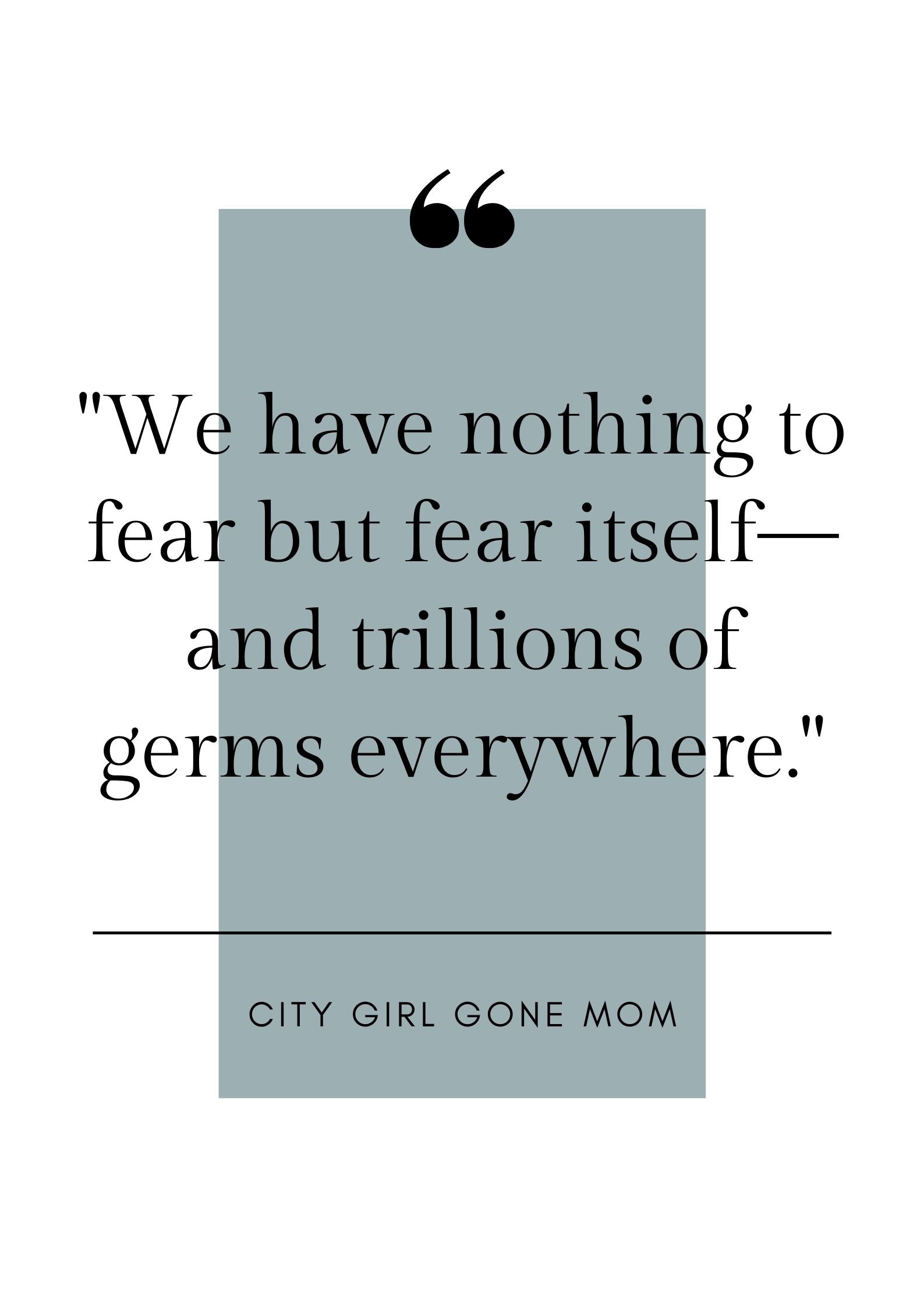
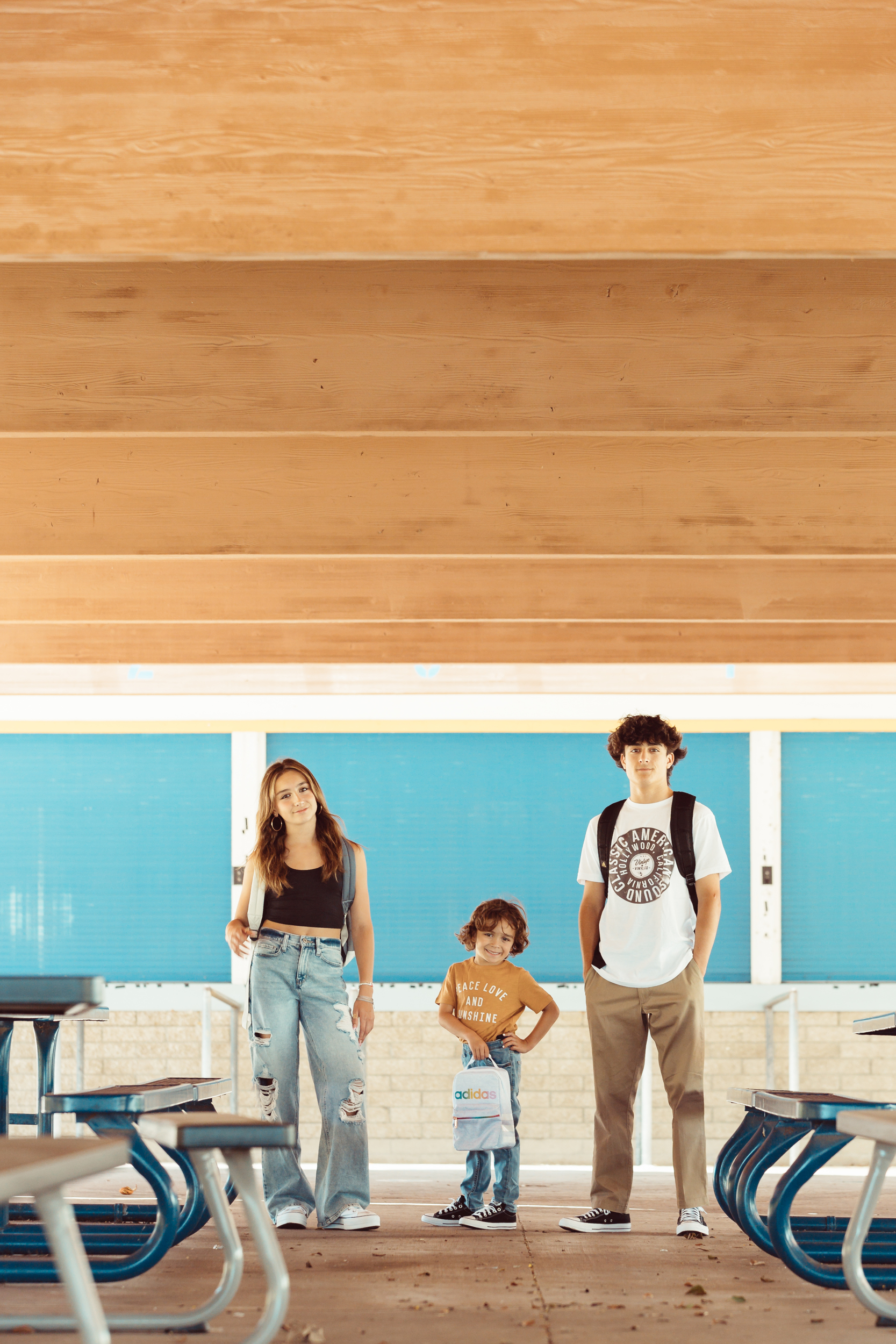
YOU MAY ALSO LIKE
SHOP THE LOOKS
Pin This Post
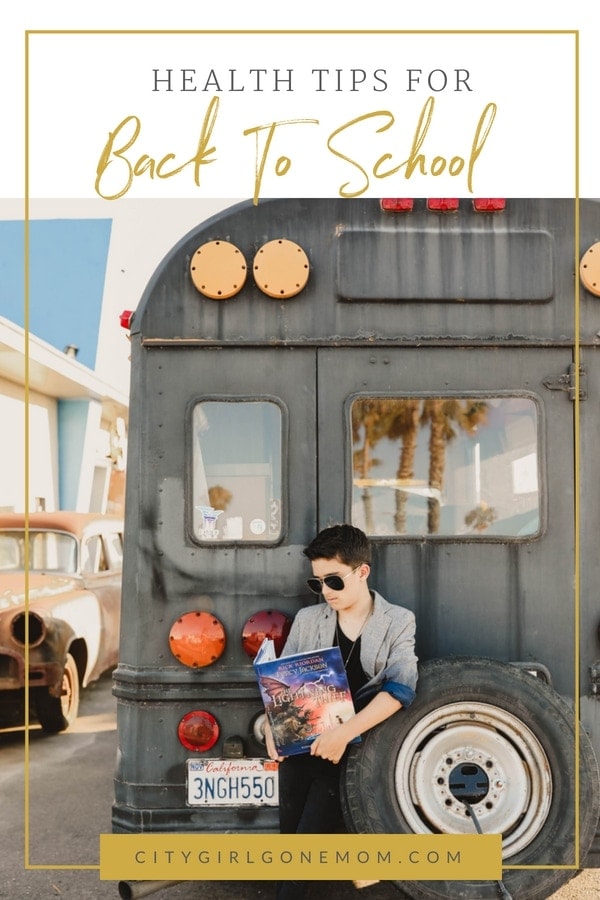
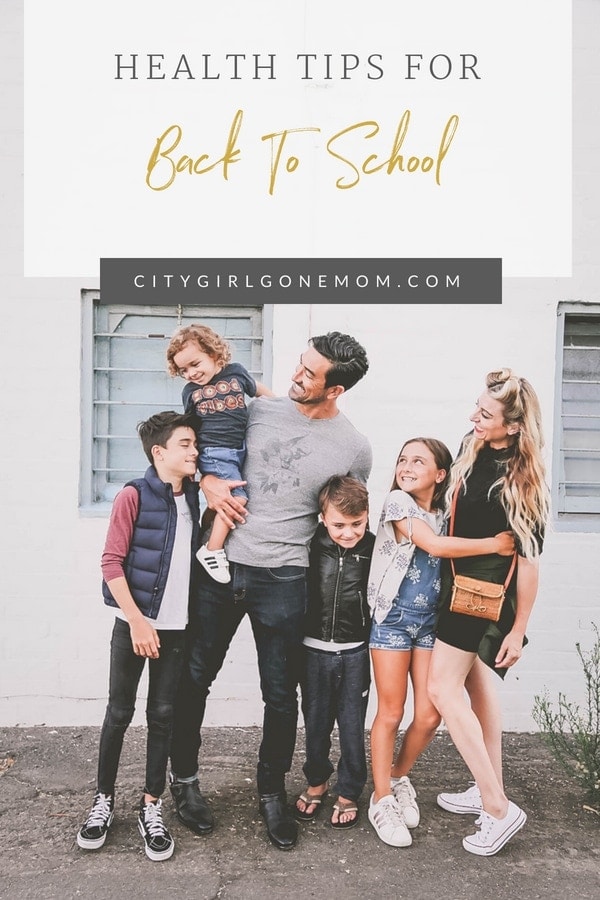

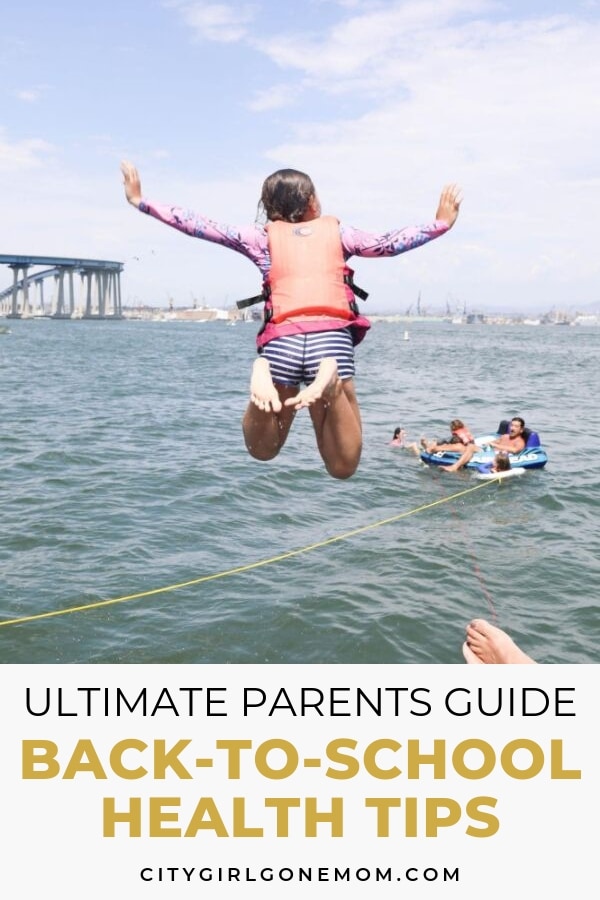





‘Health Huddle’ I love it! Great article and tips??✨
awe thanks my friend
The first few years of school are the worse. After 1st grade the kids immune systems get stronger thankfully. These are good ideas. Thanks for sharing
awe thanks for responding to this… and you are so right
What a beautiful family! I love your tips for back-to-school as well. Definitely going to keep it in mind when we start sending the little one off!
Awe so happy to help
Love this post. It’s funny… When kids grow… There are new things you have to teach them… It’s an ongoing process. Your pointers are essential ones to discuss with your kids. Such a special time.
awe thanks for your feedback much appreciated
These are great tips. I can definitely involve my son a little more. Thanks for sharing.
awe I am so glad you liked it..
The summer feels like it passed so quickly this year. These are great tips! I absolutely love these photos too!
The kids always seem to bring home germs to me and I’ve been preaching handwashing and hand sanitizer to them. I love all of your tips and they’re going to come in handy as the grandkids start back to school.
All great tips for getting kids ready for back to school. Thank you for sharing.
Okay, first the kids’ outfits are just too cute!! They are looking stylish for back-to-school time! Handwashing is a very big health tip for back-to-school. It seems like the first two months of the back-to-school season is the greatest time kids are sick. Love your tips! They are so helpful!
We started school really early this year. We’ve been in school so long that one of my kids has already been sent home sick! These are great tips for helping kids advocate for their health.
I love your style of writing for sharing back-to-school tips! You have a beautiful fun loving family!
Love those kiddos photos.. so cute and lovely… thanks for the lovely health tips.. so important for parents like me..
They look awesome and cute! I love all your tips, they are unquestionably helpful. You have a very pretty and cool family.
Kids are prone from virus that surrounds them in school or at home. Its always very helpful to have a healthy habit to be able to stay healthy.
Great tips – especially about vitamins for young kids. Thanks!